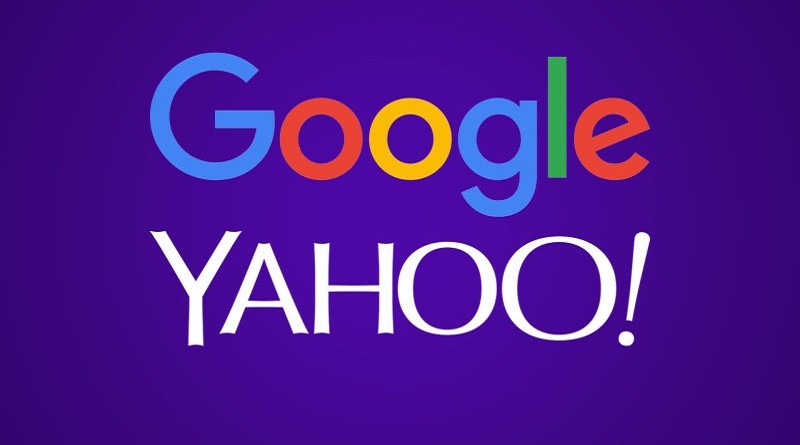What the Yahoo Google Alliance Means for Search
It has been a long time since Google and Yahoo have worked together; 11 years to be exact. In 2000, Yahoo and Google partnered to carry Google’s ads and search results. This union lasted until 2004 when Yahoo developed its own in-house search engine and ad serving system; an endeavor that did not serve the company well.
As a part of Yahoo’s latest earnings report, it was announced the two tech behemoths would reunite as Yahoo signed a non-exclusive deal with Google. In the new deal, Google is set to provide search results, ads and image search services for Yahoo’s results on both desktop and mobile; Google will pay Yahoo an undisclosed percentage of the revenue received from these results. The deal took effect as of Oct. 1 and is set to run until the end of 2018.
Yahoo previously had an exclusive deal with Microsoft, but when the deal was renegotiated earlier this year, Yahoo made it a point to leave an aperture to partner with other search-ad providers.
In Yahoo’s 2015 third-quarter report, the company disclosed it had “reached an agreement with Google that provides Yahoo with additional flexibility to choose among suppliers of search results and ads. Google’s offerings complement the search services provided by Microsoft, which remains a strong partner, as well as Yahoo’s own search technologies and ad products.”
Microsoft commented on the matter by stating, “We remain committed to the Yahoo syndication partnership and will continue to serve the majority of Yahoo traffic as outlined in our contract extension. Yahoo is a valued partner and we look forward to continuing to serve our advertising customers through the Bing Ads marketplace.”
In the new non-exclusive deal, Bing’s ads will still emerge on 51 percent of desktop searches that Yahoo provides. The remaining 49 percent will be dished out by any third-party provider that Yahoo chooses, such as Google, or by Yahoo’s internal ad system. And because it’s been noted that Yahoo has been testing Google’s search results and ads since July, Yahoo’s internal ad system will likely be used sparingly, if at all. But this only refers to desktop interactions; not mobile. Mobile currently has no limit in place, meaning that if Yahoo chose to do so, 100 percent of results could be served by Google. By the same token, however, Yahoo is not required to guarantee Google any amount of search queries, as this excerpt explains:
“Under the Services Agreement, Yahoo has discretion to select which search queries to send to Google and is not obligated to send any minimum number of search queries. The Services Agreement is non-exclusive and expressly permits Yahoo to use any other search advertising services, including its own service, the services of Microsoft Corporation or other third parties.”
Additionally, the deal does not reach all regions. As of now, “Yahoo may use Google’s services on Yahoo’s owned and operated properties (“Yahoo Properties”) and on certain syndication partner properties (“Affiliate Sites”) in the United States (U.S.), Canada, Hong Kong, Taiwan, Singapore, Thailand, Vietnam, Philippines, Indonesia, Malaysia, India, Middle East, Africa, Mexico, Argentina, Brazil, Colombia, Chile, Venezuela, Peru, Australia and New Zealand.”
It would seem that Europe has been left out of this negotiation. This is likely due to the fact that Google is currently under investigation in Europe for anti-trust practices; a controversy that has attracted much attention. The search giant is clearly not looking to draw more attention to itself in a region where it already holds 90 percent or more of the market share.
In 2008, the United States Department of Justice broke up a similar deal between the two companies over anti-trust concerns. This time around, Yahoo and Google have both agreed to specific provisions with the Anti-trust Division of the DOJ, however, no details have been disclosed and the Services Agreement has still not been reviewed by the Department of Justice at this time.
But if the deal does go awry, it may not be the DOJ who puts on the brakes. Granted that 60 days’ notice is given, either party can end the contract. In addition, Google has termination capabilities upon “certain events” transpiring; these certain events have not been disclosed. On Yahoo’s side, the company can decouple from Google if content is not served in a quick enough manner.
No matter how you cut it, this deal is big for both Yahoo and Google. As Google continues to dominate the U.S. search market with a 64 percent share, Yahoo seeks to capitalize on this momentum and gain additional revenue along the way. For Google, this will only help the search mammoth gain additional power and market influence.
So how exactly does this deal impact businesses? With Yahoo now utilizing a portion of Google’s ads, many businesses already advertising on Google could potentially reap the benefits of increased visibility across multiple properties. Additionally, sites possessing high rankings on Google’s SERPs could also see a boost on Yahoo’s search engine as well, however, this is no guarantee because Yahoo is not obligated to use Google’s services.
As far as those advertising on Bing are concerned, there will likely be minimal changes in the desktop arena. As for mobile, the deal does not extend to Smartphones, tablets, and smaller screens; therefore, Yahoo may not display any of these ads on such portable devices.
What are your thoughts on the new Yahoo-Google deal? Do you think this will be a highly beneficial partnership for the companies, or will the DOJ squash the deal once more?




